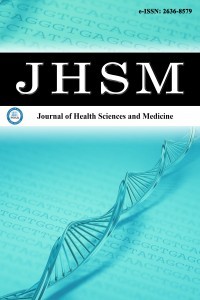Pneumococcal and influenza vaccination rates among patients with cardiovascular disease
Introduction: Influenza virus infections and pneumococcal pneumonia are associated with significant increases in hospitalization and mortality rates in patients with cardiovascular diseases (CVD). In Turkey, pneumococcal and flu vaccines are recommended for patients with chronic heart disease, adults aged 65 and older and adults who are at risk of pneumonia.
Material and Method: This study was conducted between July 2019 and December 2019 among 240 CVD patients. The survey consisted of 29 questions aimed at evaluating the sociodemographic characteristics of the patients, the history of influenza and pneumococcal vaccines, and their knowledge and attitudes towards vaccines.
Results: Vaccination rates were low in CVD patients. Last year, only 10% of the participants had been previously vaccinated with the pneumococcal vaccine and 27.75% with the influenza vaccine. While the percentage of vaccination influenza vaccine among university graduates was significantly higher than all other groups, this high was not detected for pneumococcal vaccine.
Eighty percent of the participants visited their family physicians regularly in the previous year, while only 61.6% received information about the vaccination from the doctor or nurse. Influenza vaccine (39.2%) was recommended at a higher rate than pneumococcal pneumonia (12.1%) by the physicians or nurses of the participants during the visits. (p
Keywords:
cardiovascular disease, influenza vaccine, pneumococcal vaccine, survey,
___
- Corrales-Medina VF, Madjid M, Musher DM. Role of acute infection in triggering acute coronary syndromes. Lancet Infect Dis 2010; 10: 83-92.
- Nguyen JL, Yang W, Ito K, Matte TD, Shaman J, Kinney PL. Seasonal influenza infections and cardiovascular disease mortality. JAMA Cardiol 2016; 1: 274-81.
- Madjid M, Miller CC, Zarubaev VV, et al. Influenza epidemics and acute respiratory disease activity are associated with a surge in autopsy-confirmed coronary heart disease death: results from 8 years of autopsies in 34,892 subjects. Eur Heart J 2007; 28: 1205-10.
- Thompson WW, Shay DK, Weintraub E, et al. Influenza-associated hospitalizations in the United States. JAMA 2004; 292: 1333-40.
- Freedman MS, Hunder P, Ault K, Kroger A. Advisory Committee on Immunization Practices Recommended Immunization Schedule for Adults Aged 19 years or Older-United States 2020. MMWR Morb Mortal Wkly Rep 2020; 69: 133-5.
- Esposito S, Bonanni P, Maggi S, et al. Recommended immunization schedules for adults: Clinical practice guidelines by the Escmid Vaccine Study Group (EVASG), European Geriatric Medicine Society (EUGMS) and the World Association for Infectious Diseases and Immunological Disorders (WAidid). Hum Vaccin Immunother 2016; 12: 1777-94.
- Şenol E, Azap A, Erbay A, Alp-Cavus S, Karakus R, Acar A. Erişkin bağışıklamasının hedefindeki aşılardan biri olarak pnömokok aşısı: Türk Klinik Mikrobiyoloji ve İnfeksiyon Hastalıkları Derneği Erişkin Bağışıklaması Çalışma Grubu Uzlaşı Raporu. Kimlik Der 2018; 31: 2-18.
- Kizmaz M, Kumtepe Kurt B, Çetin Kargin N, Döner E. Influenza, pneumococcal and herpes zoster vaccination rates among patients over 65 years of age, related factors, and their knowledge and attitudes. Aging Clin Exp Res 2020; 32: 2383-91.
- Çelik A, Altay H, Azap A, et al. Vaccination of adults with heart failure and chronic heart conditions: Expert opinion. Turk Kardiyol Dern Ars 2018; 46: 723-34.
- World Health Organization. https: //www.who.int/health-topics/cardiovascular-diseases/#tab=tab_1. accesse 20 Novembe 2020.
- González-Romo F, Barrios V. Why should we recommend pneumococcal vaccine in patients with chronic heart diseases? Rev Esp Cardiol (Engl Ed) 2018; 71: 57-8.
- Siscovick DS, Raghunathan TE, Lin D, et al. Influenza vaccination and the risk of primary cardiac arrest. Am J Epidemiol 2000; 152: 674-7.
- Lode H, Ludwig E, Kassianos G. Pneumococcal infection--low awareness as a potential barrier to vaccination: results of a European study. Adv Ther 2013; 30: 387-405.
- World Health Organization. Regional Office for Europe, European Observatory on Health Systems and Policies, Turkey: health system review. Tatar, Mehtap, Mollahaliloğlu, Salih, Sahin, Bayram. et al. (2011). World Health Organization. Regional Office for Europe. https: //apps.who.int/iris/handle/10665/330325. accesse 20 Novembe 2020.
- Korkmaz P, Paşali Kilit T, Onbaşi K, Mistanoglu Ozatag D, Toka O. Influenza vaccination prevalence among the elderly and individuals with chronic disease, and factors affecting vaccination uptake. Cent Eur J Public Health 2019; 27: 44-9.
- Kaya H, Beton O, Acar G, et al. Influence of influenza vaccination on recurrent hospitalization in patients with heart failure. Herz 2017; 42: 307-15.
- Ünal S, Tanriover MD, Tas E, Güner I, Cetin ÖY, Sayar I. Aile hekimlerine eğitim verilmesi ve aşılama hedeflerinin belirlenmesinin pnömokok aşılanma oranları üzerine etkileri. Flora 2015 20: 10-5.
- Yilmaz T, Yilmaz TE, Ceyhan S, et al. Evde sağlık hizmetleri birimine kayıtlı geriatrik hastaların influenza ve pnömokok aşısı ile aşılanma durumları ve doktor önerisinin etkisi. Ankara Med J 2018; 3: 391‐401.
- Naito T, Yokokawa H, Watanabe A. Impact of the national routine vaccination program on 23-valent pneumococcal polysaccharide vaccine vaccination rates in elderly persons in Japan. J Infect Chemother 2018; 24: 496-8.
- Naito T, Matsuda N, Tanei M, Watanabe Y, Watanabe A. Relationship between public subsidies and vaccination rates with the 23-valent pneumococcal vaccine in elderly persons, including the influence of the free vaccination campaign after the Great East Japan Earthquake. J Infect Chemother 2014; 20: 450-3.
- Gross PA, Hermogenes AW, Sacks HS, Lau J, Levandowski RA. The efficacy of influenza vaccine in elderly persons. A meta-analysis and review of the literature. Ann Intern Med 1995; 123: 518-27.
- Yayın Aralığı: Yılda 6 Sayı
- Başlangıç: 2018
- Yayıncı: MediHealth Academy Yayıncılık
Sayıdaki Diğer Makaleler
Gizem İLTER AKTAŞ, Tülin FIRAT, Fatma PEHLİVAN KARAKAŞ
Murat ALPARSLAN, Zeynep Nur AKÇABOY, Gülçin AYDIN, Işın GENÇAY, Kevser PEKER, Birhan OKTAŞ, Ahmet Tuğrul ŞAHİN
Mahmud AYDIN, Serkan SURUCU, Onur OZEL, Onur DEMIRSU, Murat YILMAZ
Zeynep ÇETİN, Derya KÖSEOĞLU, Özden ÖZDEMİR BAŞER
Ömer KAZCI, Düzgün Can ŞENBİL, Seda KAYNAK ŞAHAP, Berna UCAN, Sonay AYDIN
Mustafa KAYA, Enes GÜRÜN, İsmail AKDULUM
Ahmet KARAYİĞİT, Dursun Burak ÖZDEMİR, Hayrettin DİZEN, Bülent ÜNAL, İlter OZER, Murat ULAŞ
